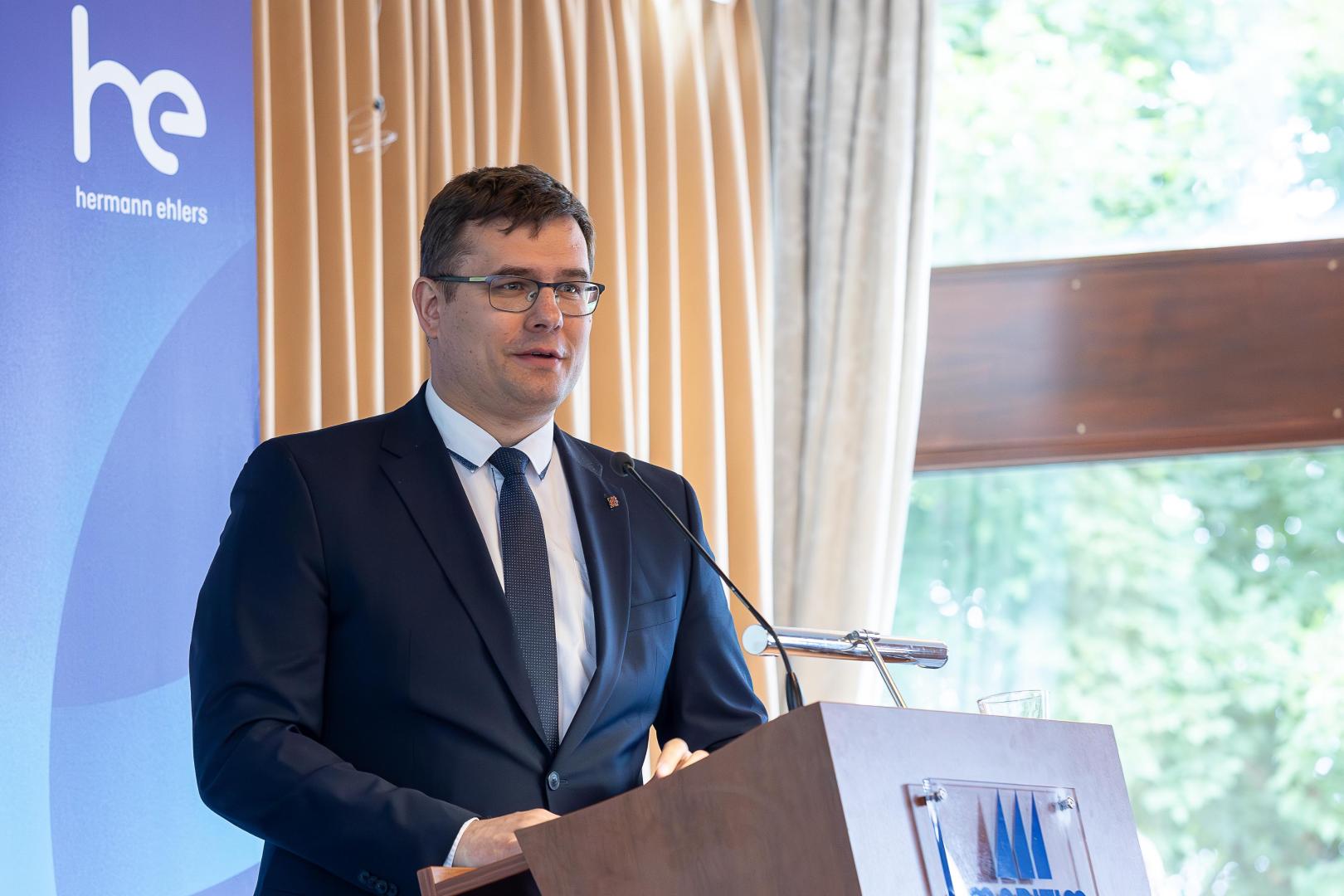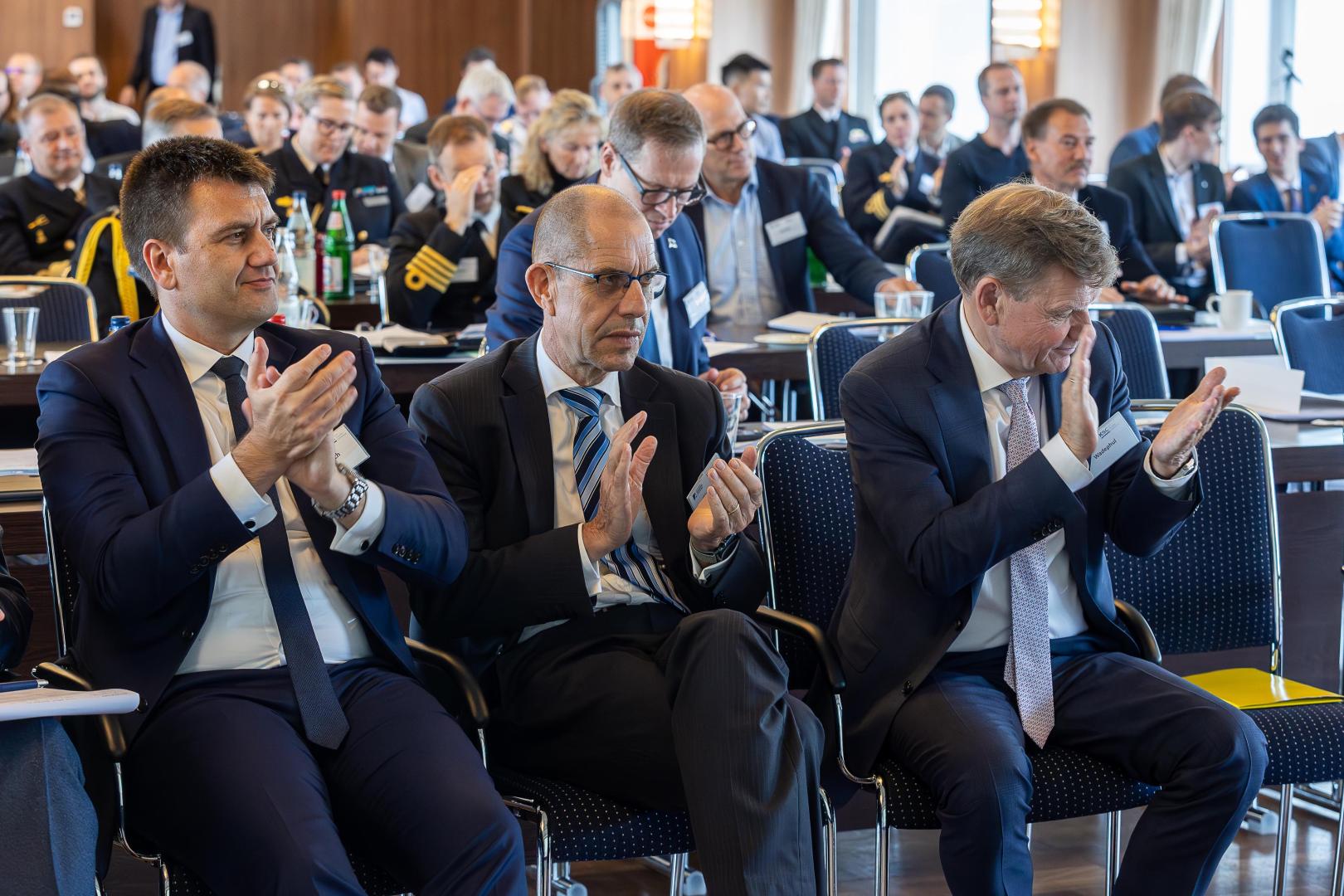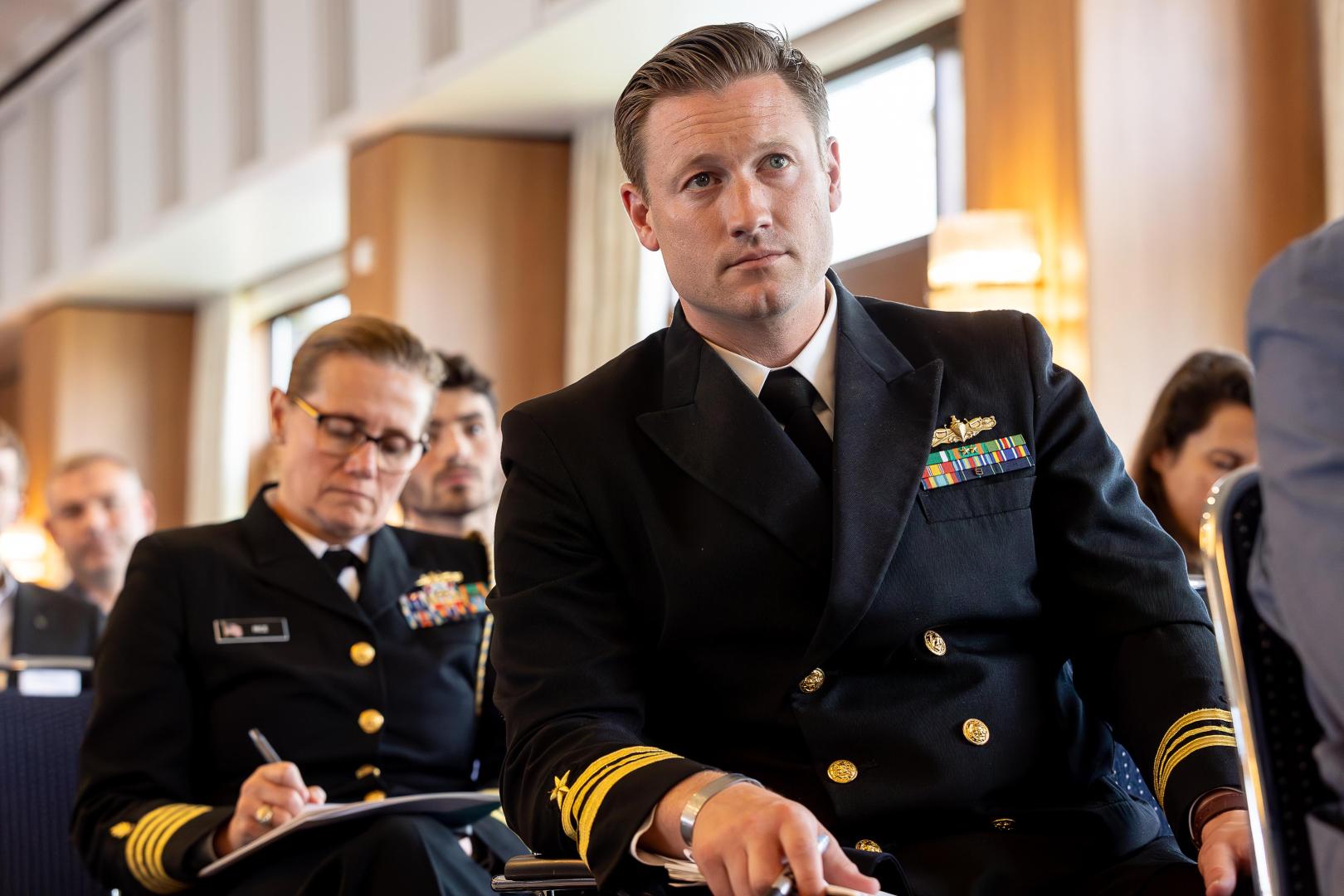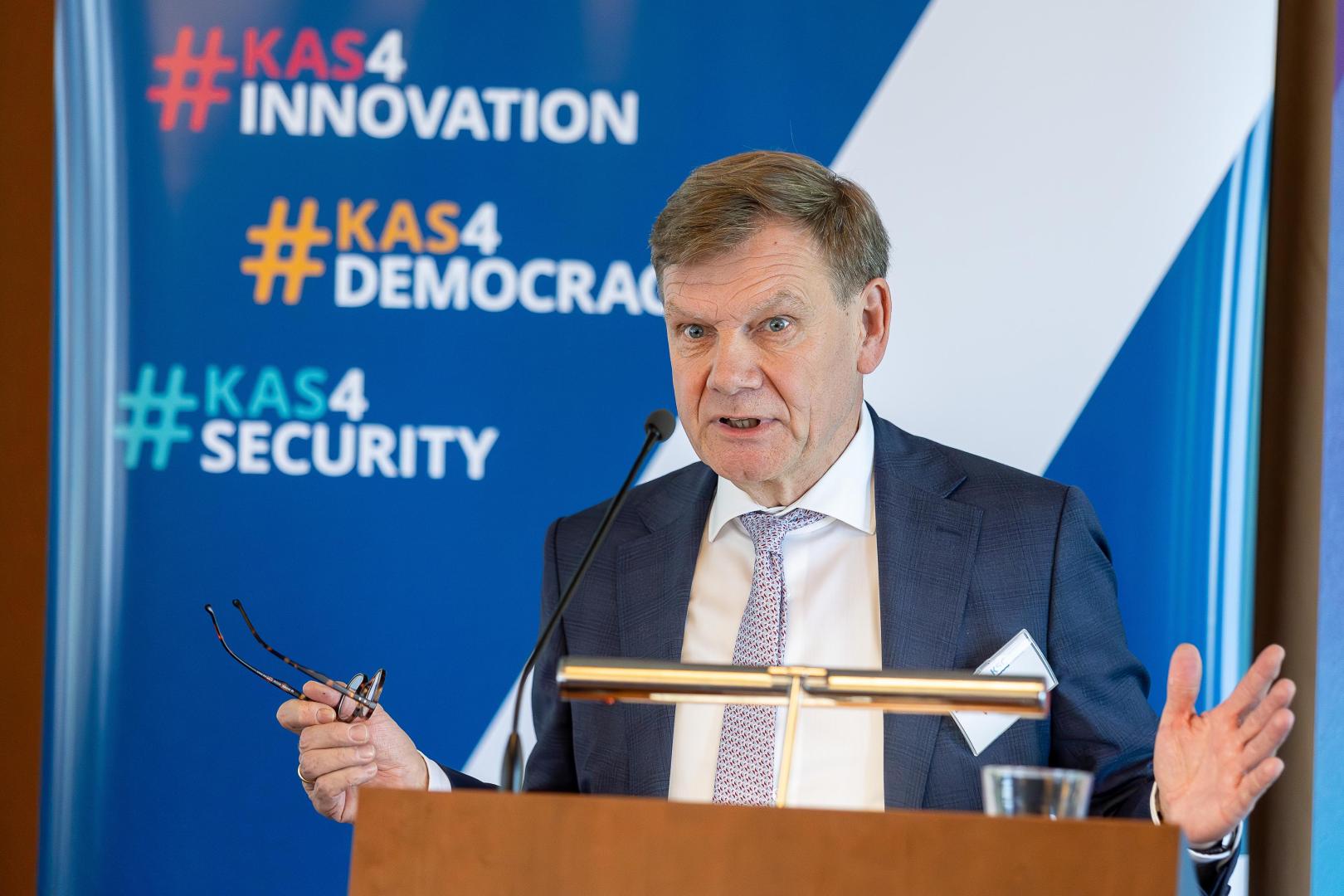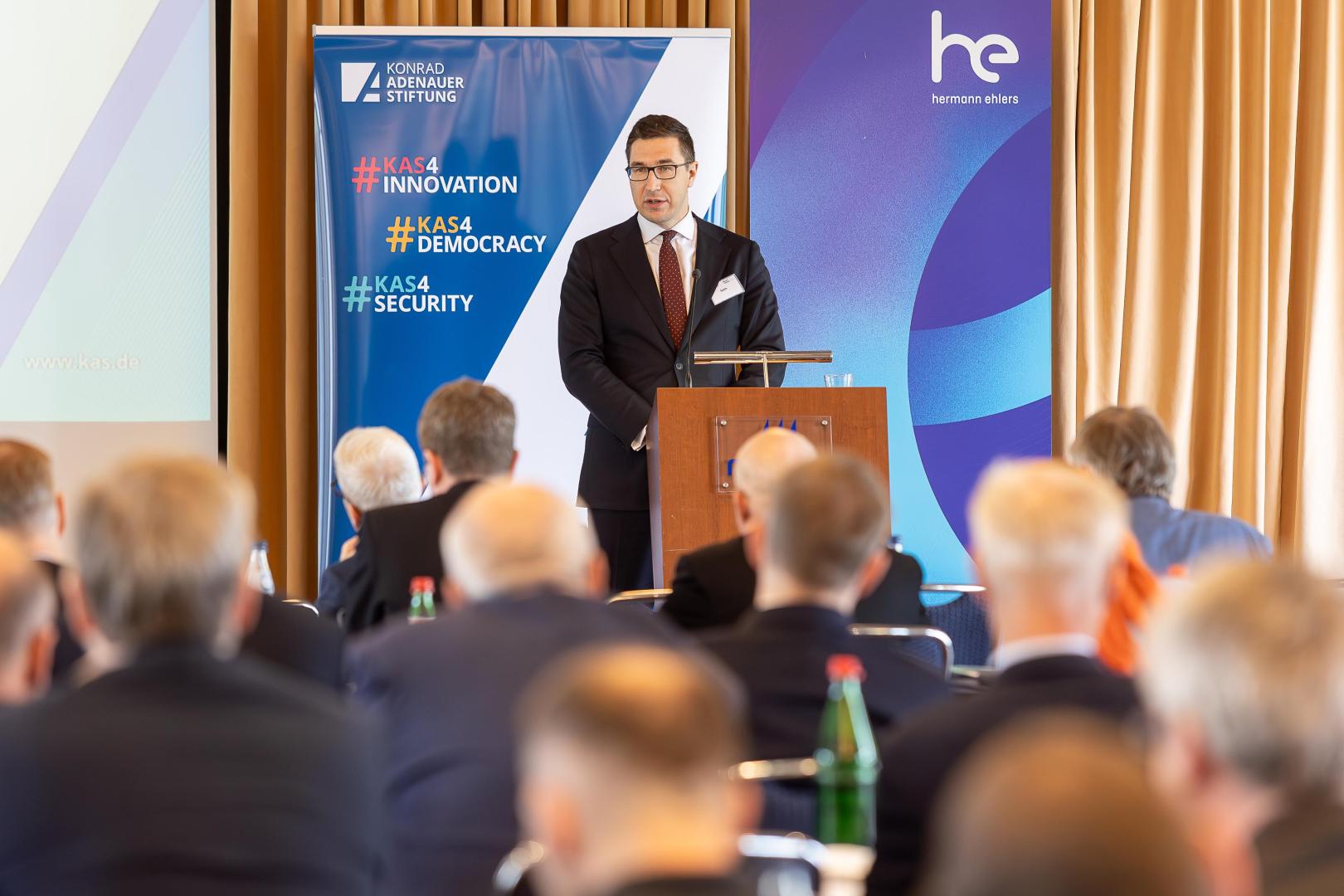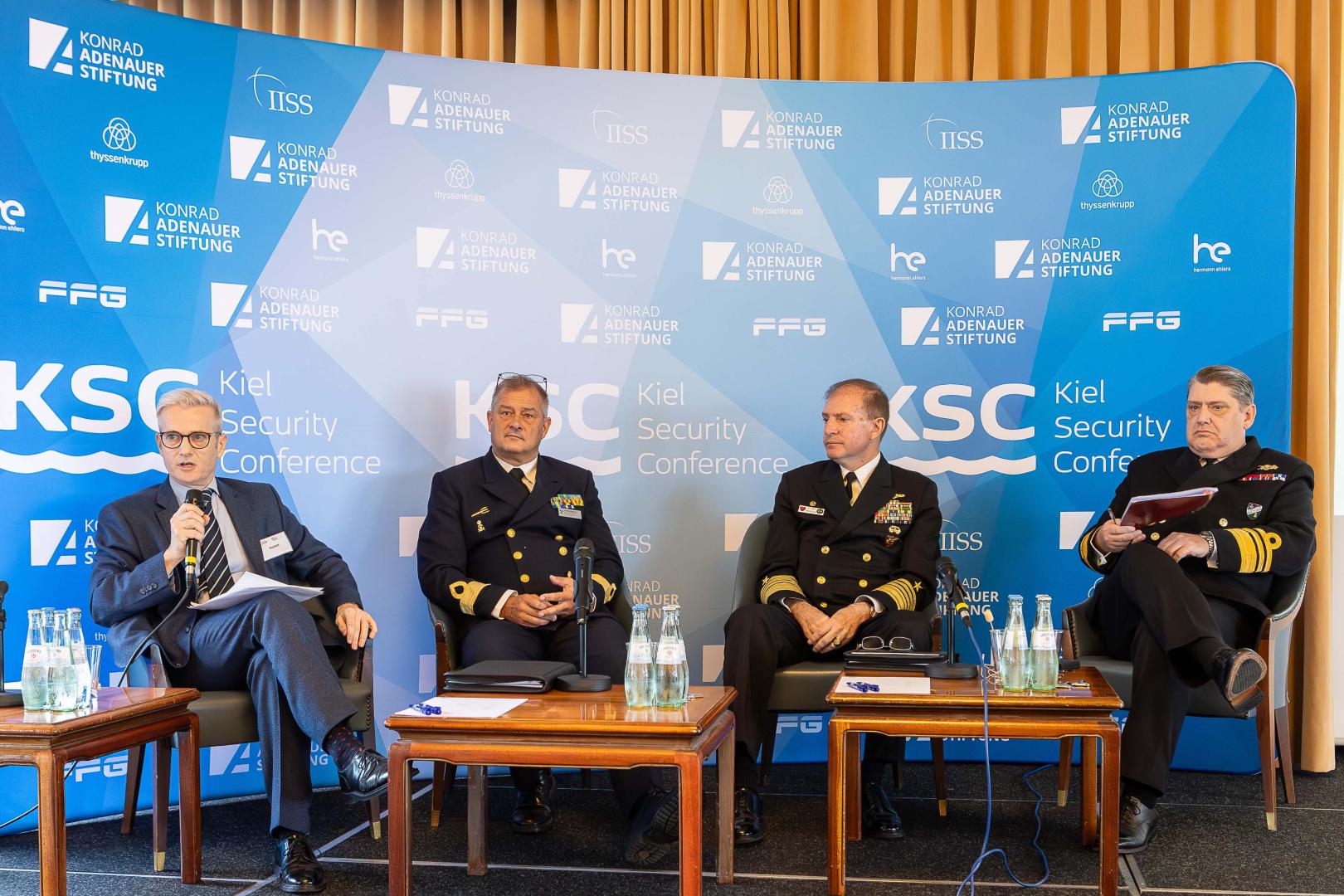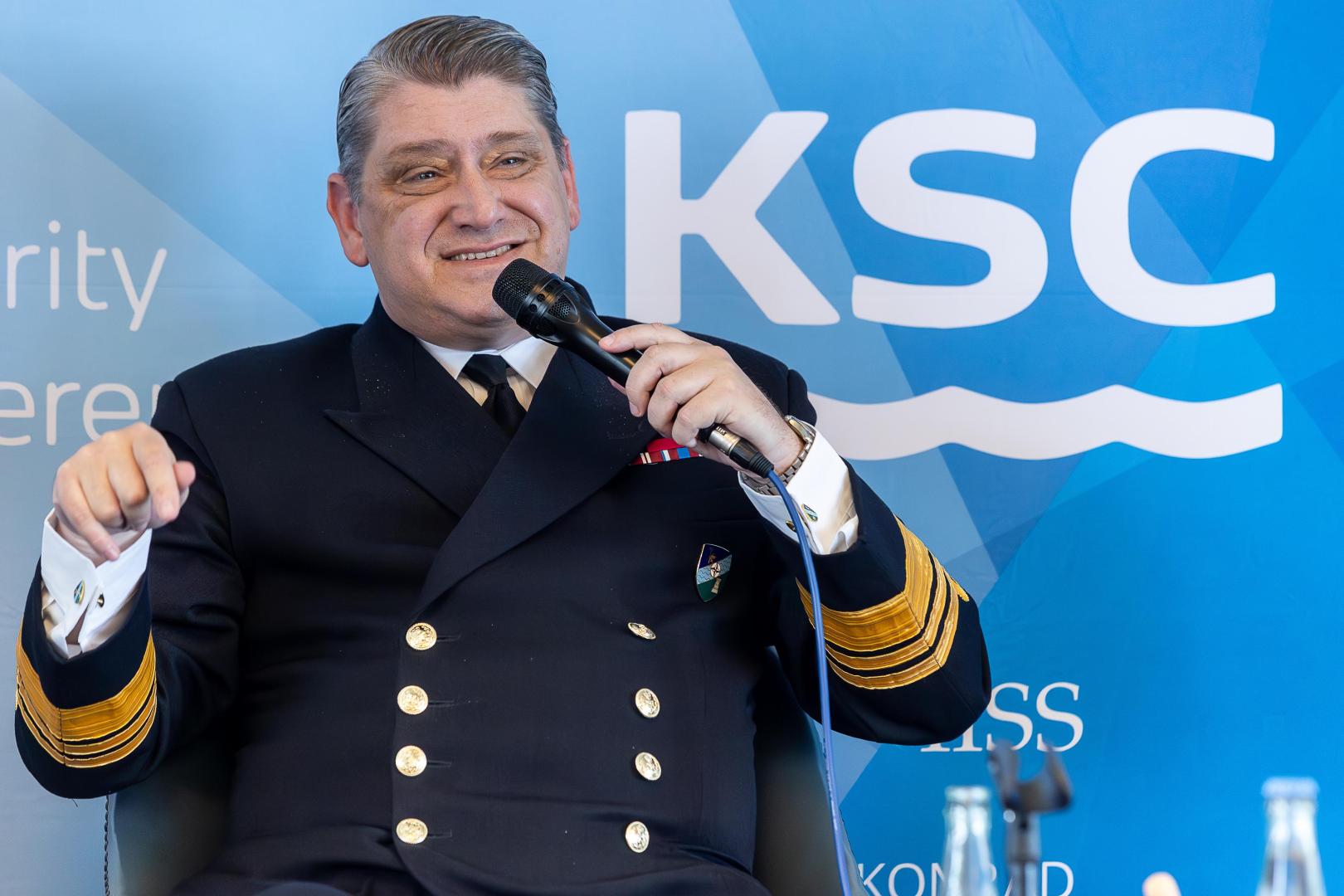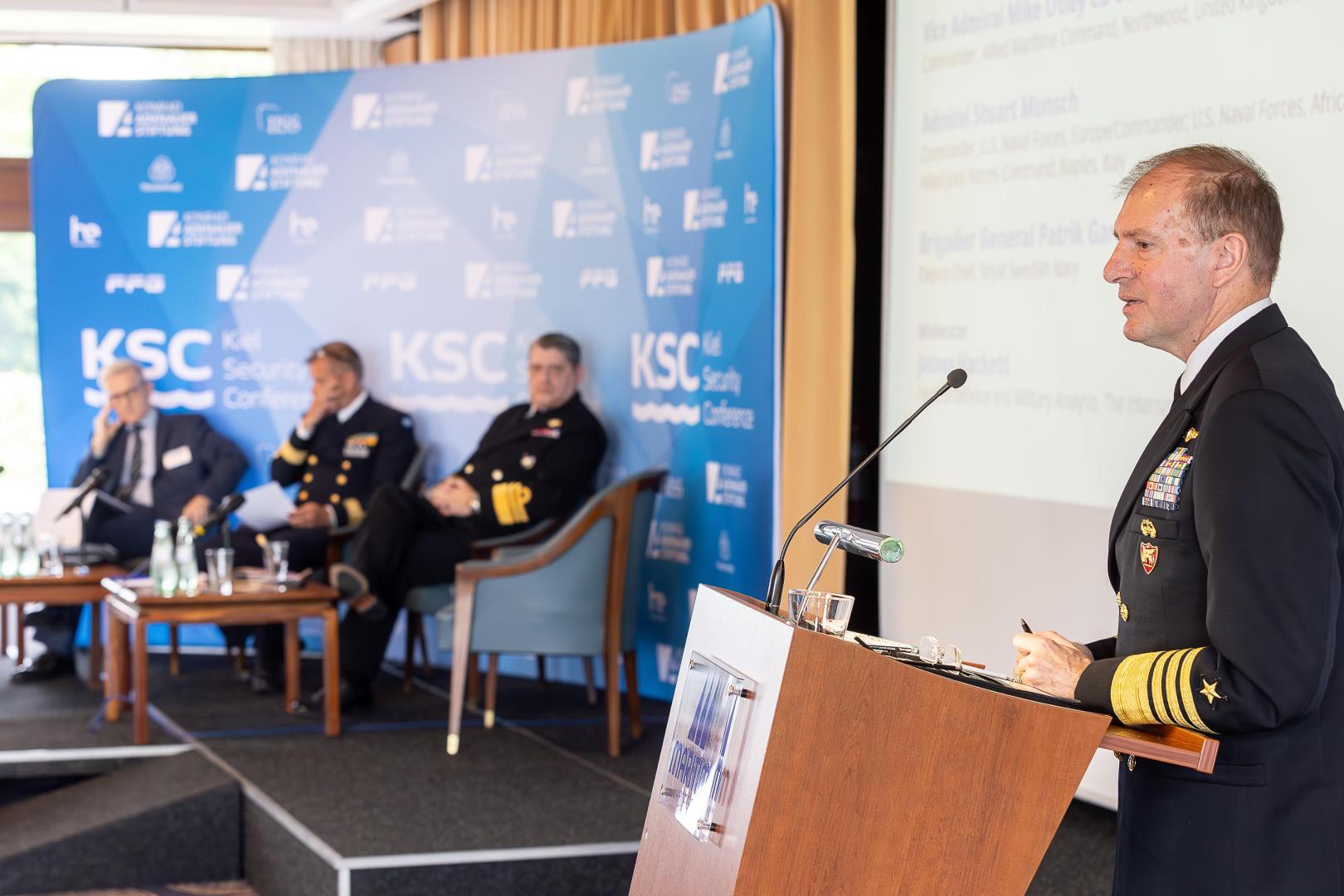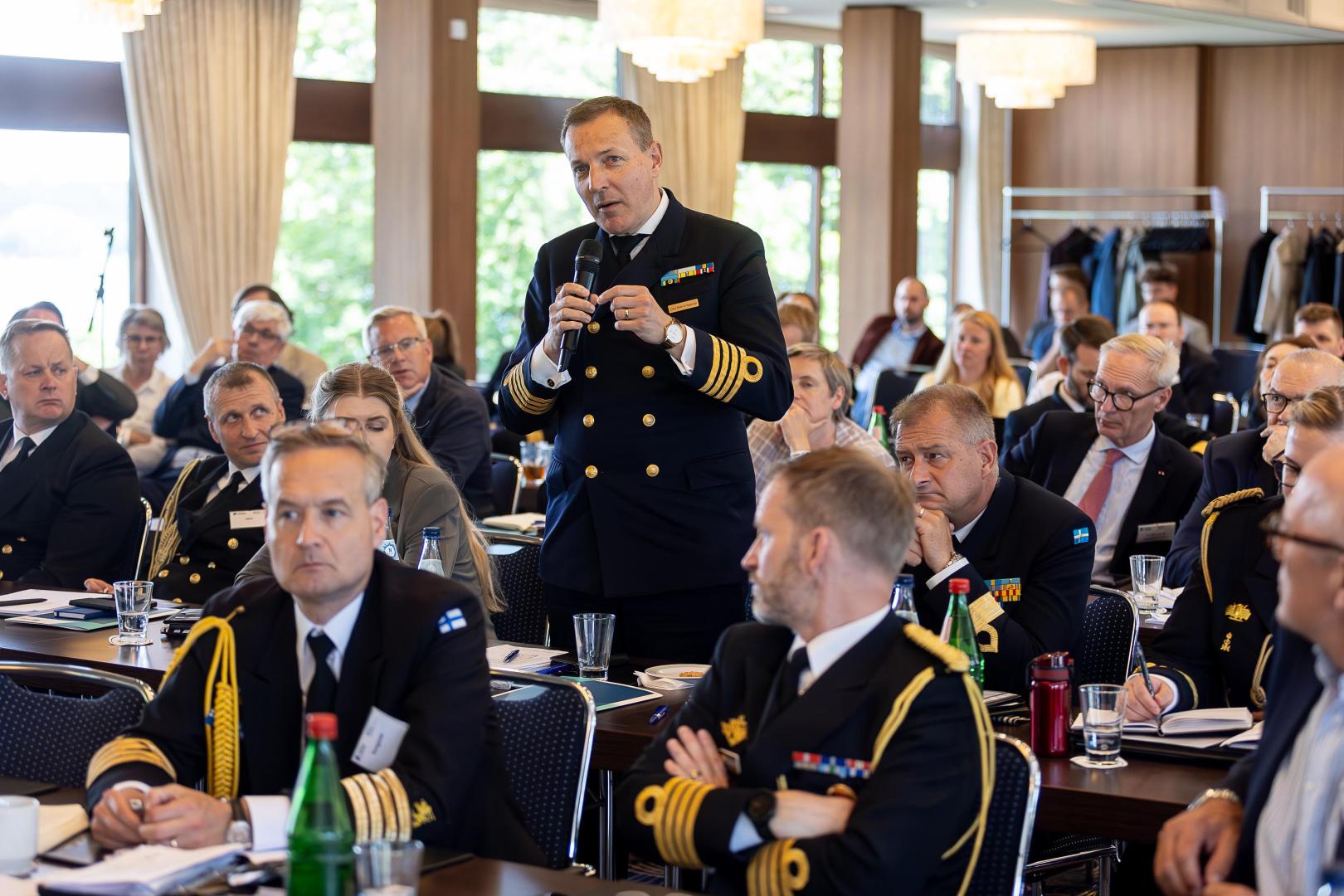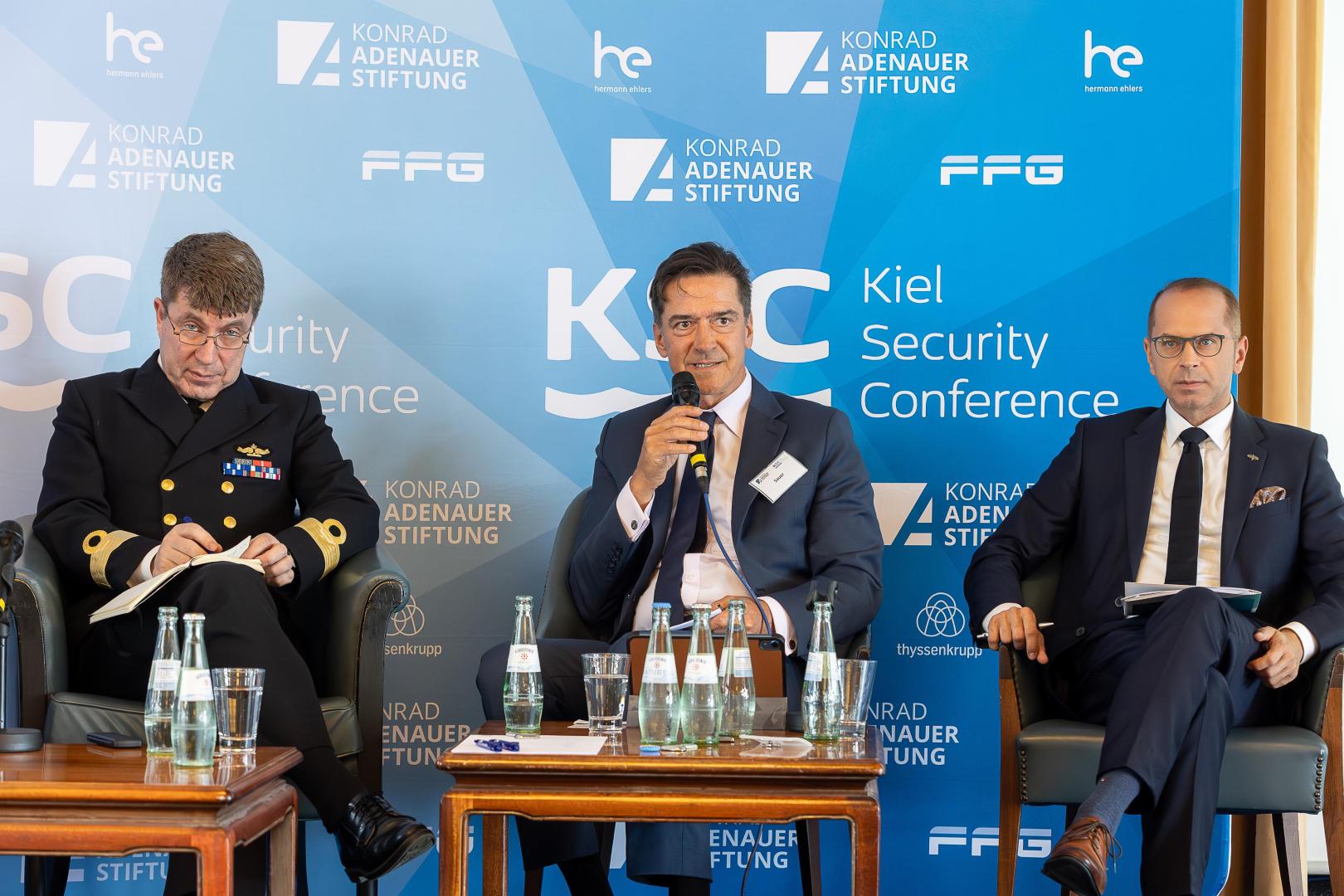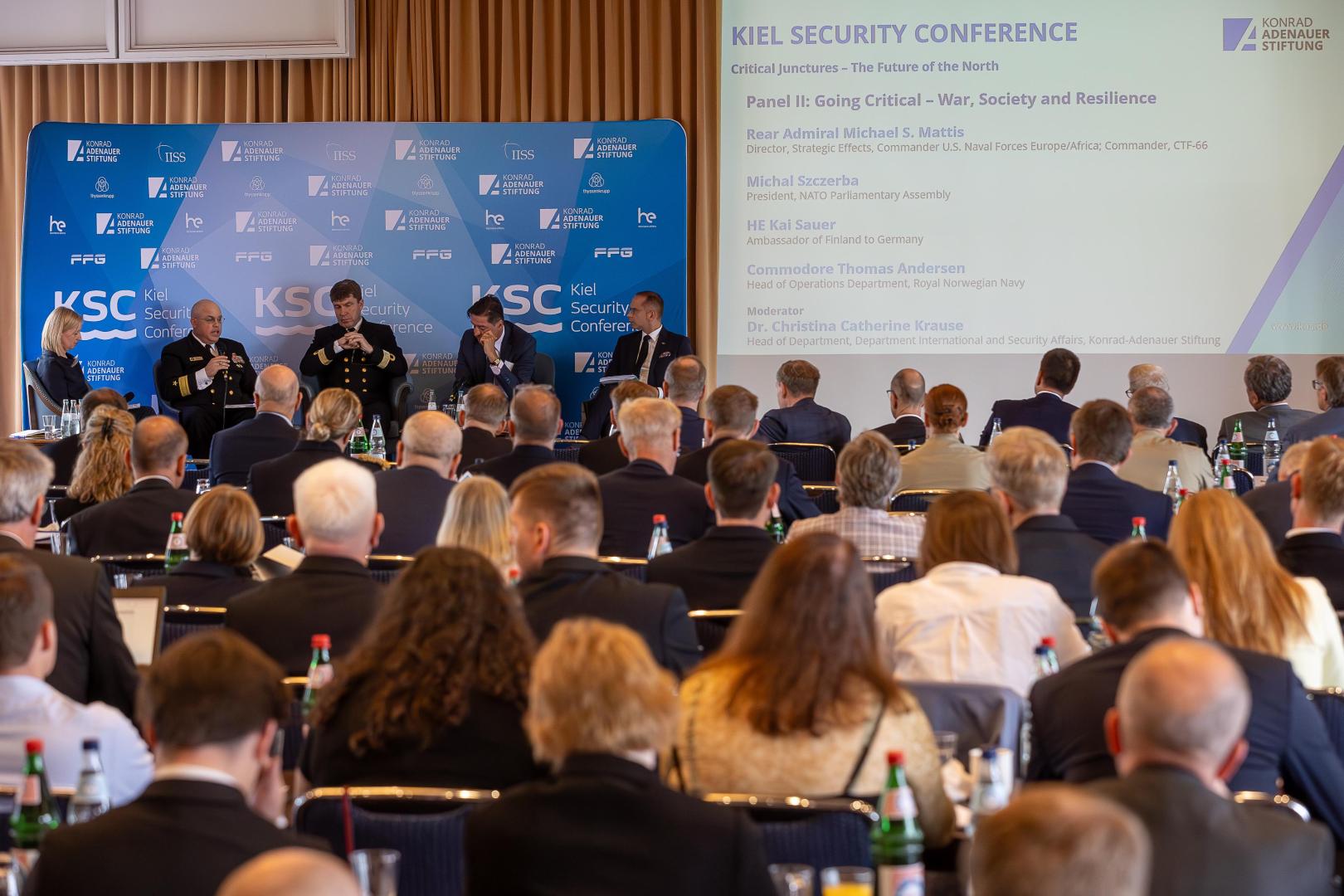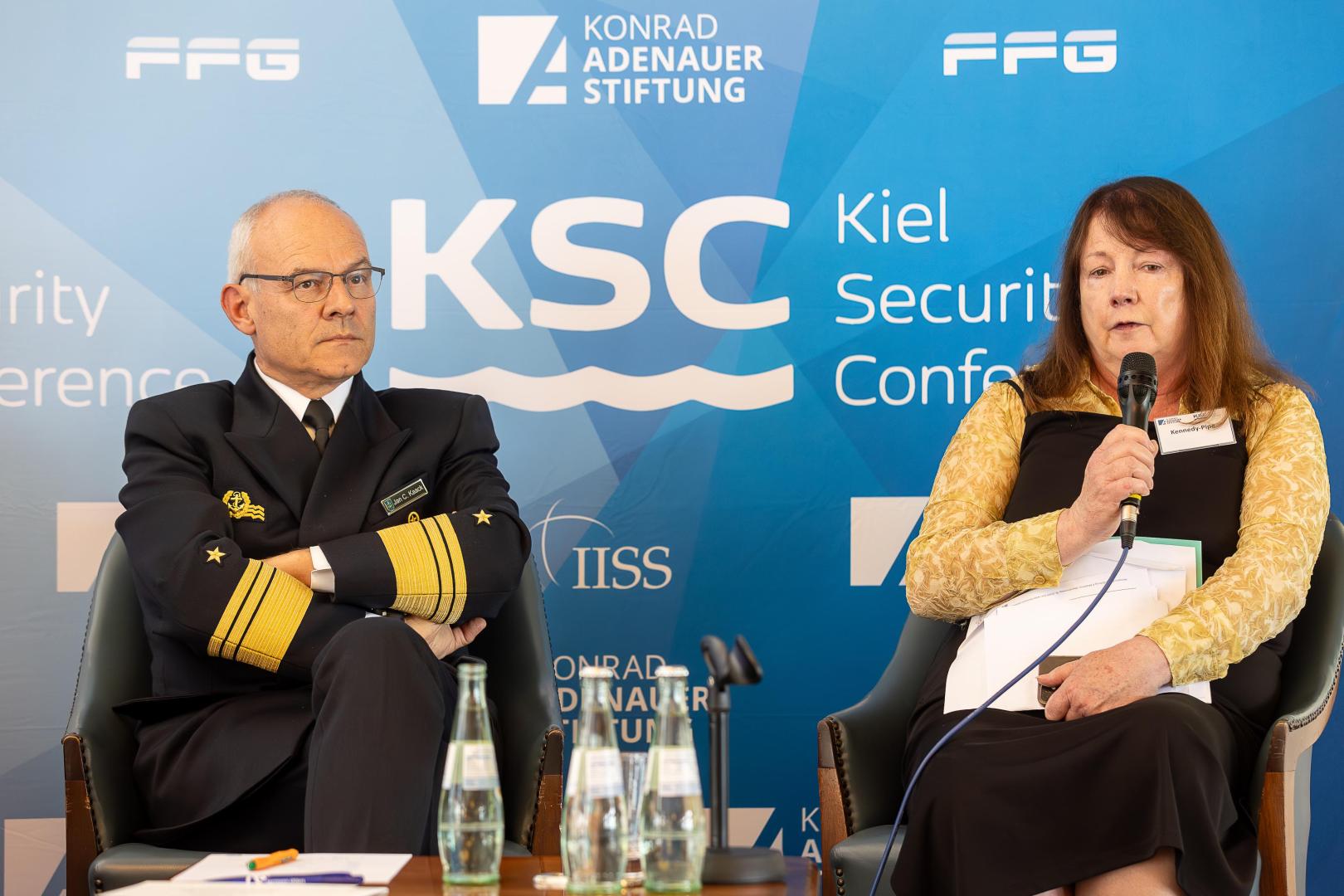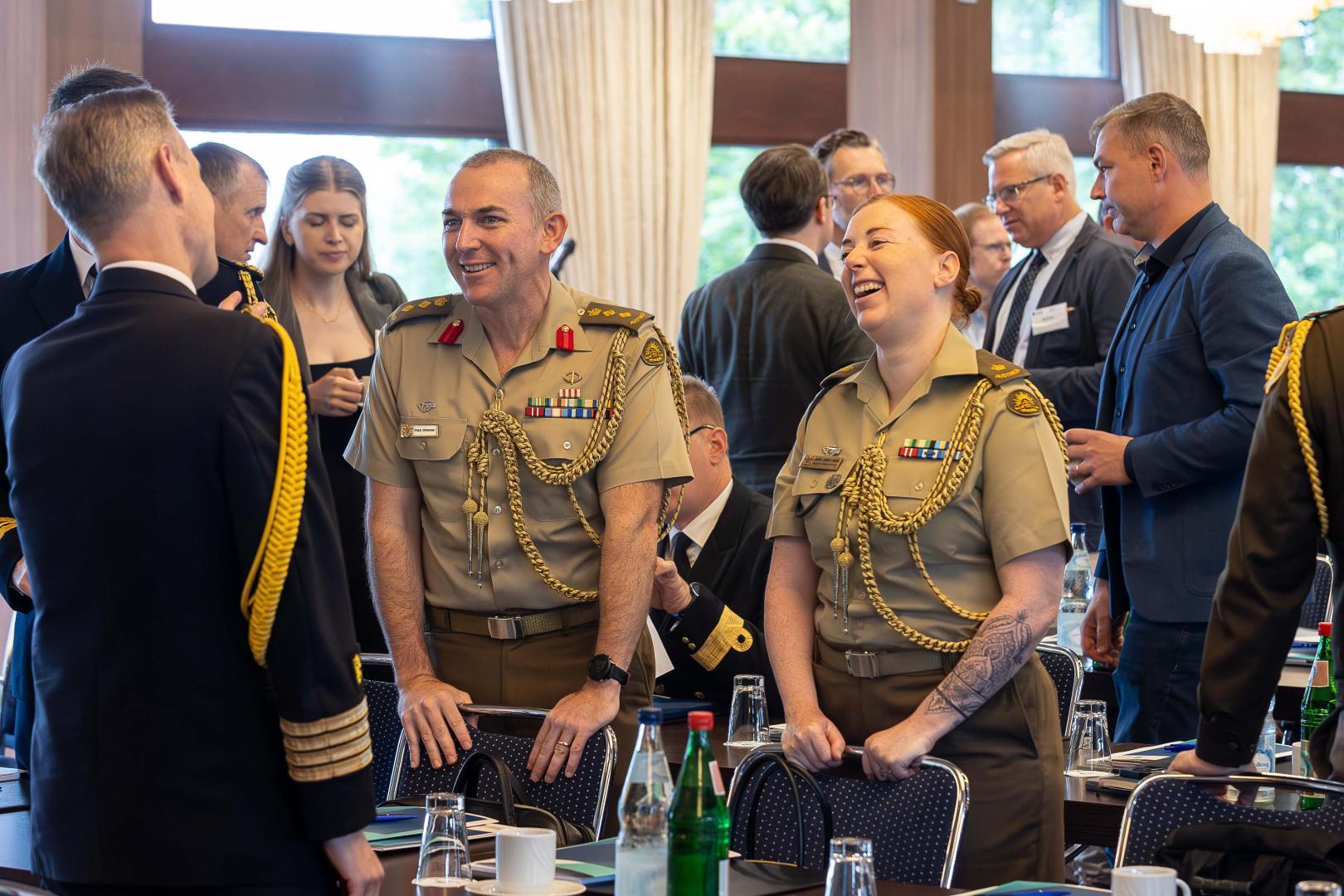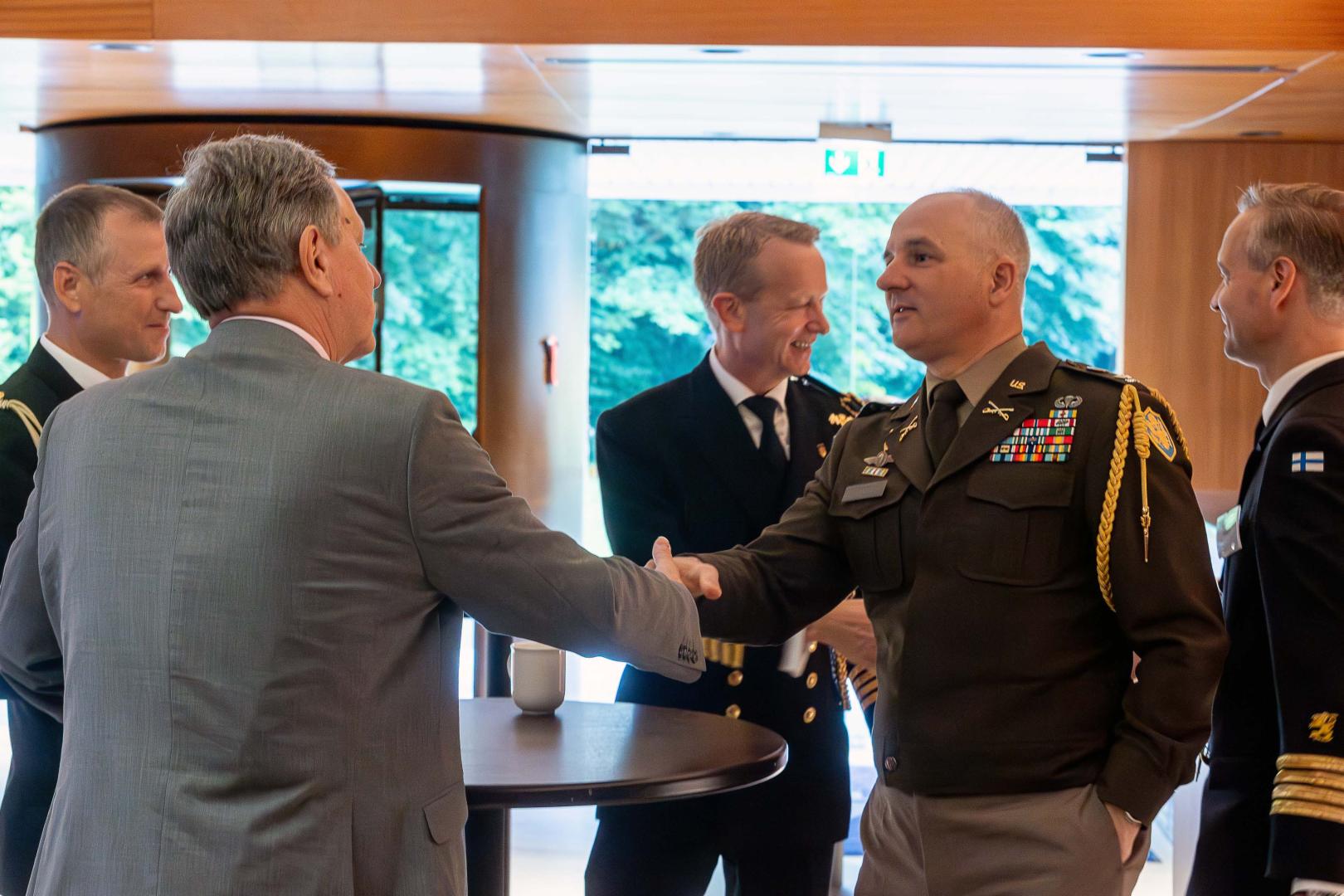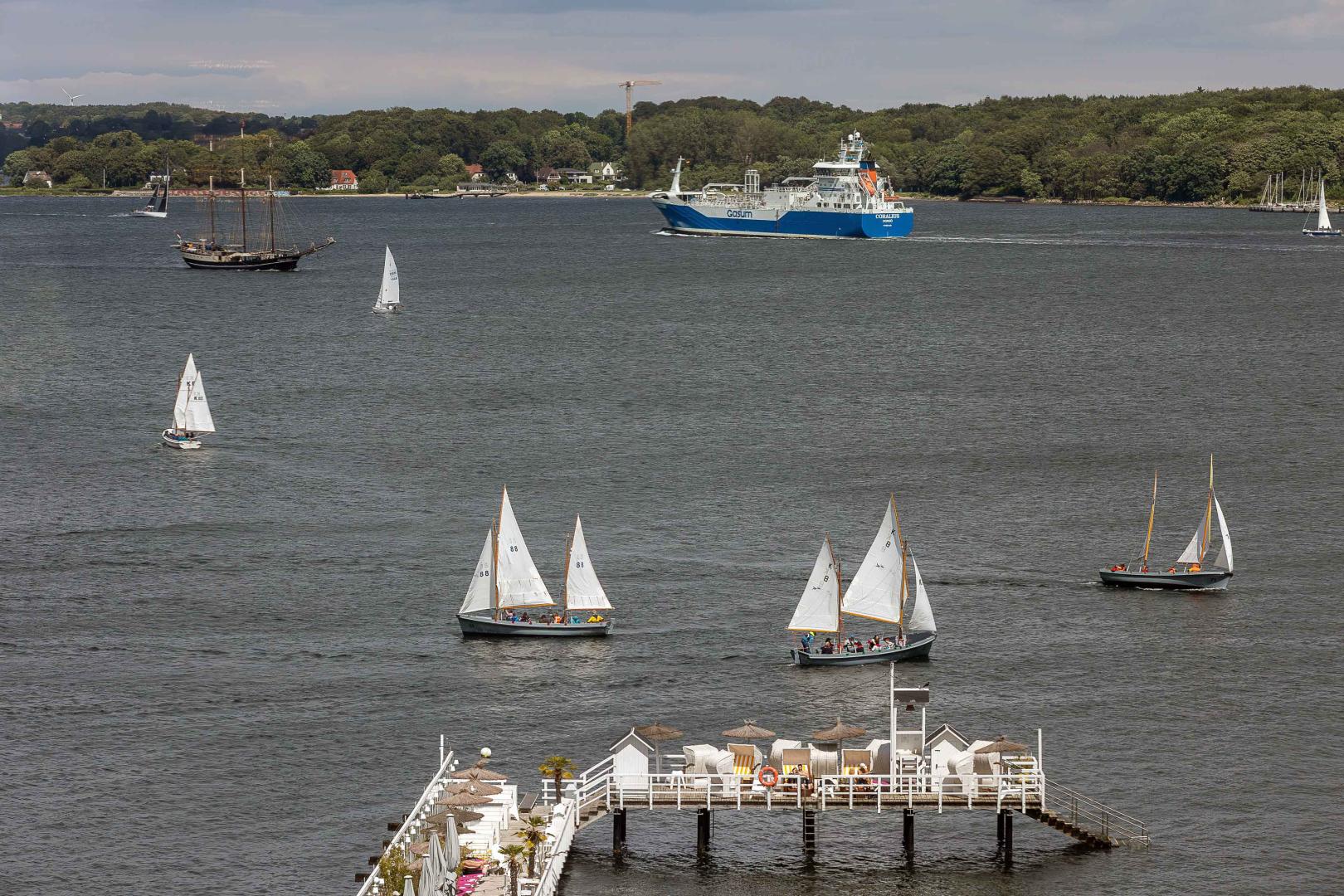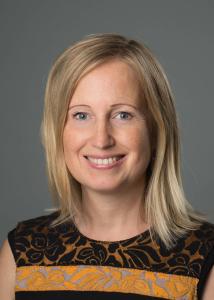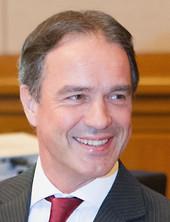During the welcoming remarks, Dr. Gerhard Wahlers (Deputy Secretary General, KAS) stressed the urgency to talk about the Baltics and maritime security since conflicts in the region are ongoing while also pointing out the importance of security in other regions, like in Israel and the Red Sea. Dr. Bastian Giegerich (Director-General and Chief Executive, IISS) furthermore added the significance of staying united in Europe while also rapidly investing and modernising our armed forces. Moreover, Dr. Johann Wadephul MP (Deputy Chairman of the CDU/CSU-Parliamentary Group, German Bundestag) pointed out how much the security landscape has changed in recent years and that it is important to explain to the population the special role Germany has to play in defending Europe.
High-level Keynote
Laurynas Kasčiūnas (Minister of Defence of the Republic of Lithuania) made a strong argument for peace through strength, as a precondition for successful diplomacy, while also pointing out that going back to business with Russia is impossible in the near future. According to the minister, Russia is testing NATO and looking for opportunities to act against NATO members. However, while Russia’s intentions cannot be fully influenced by NATO countries, Russia is significantly investing in its capabilities and might use these in case the country sees an opportunity. Therefore, NATO members need to invest in credible defence solutions, improve preparedness and support Ukraine to push back against Russia and limit any weaknesses Russia could identify.
Panel I: Finland, Sweden and NATO – New Plans for the North
Vice Admiral Mike Utley CB OBE (Commander, Allied Maritime Command, Northwood, UK) underlined that NATO stands ready to deter adversaries and is adaptable, innovative and always ready. Moreover, he stressed the importance of military planning and development in order to achieve decision superiority and that the substantial capabilities of Finland and Sweden are supporting the alliance at a crucial time. Admiral Stuart Munsch (Commander, U.S. Naval Forces, Europe/Commander U.S. Naval Forces, Africa/Commander, Allied Joint Forces Command, Naples) added that he was impressed by the seriousness of the two countries in joining the alliance, by their interoperability, their capabilities and also of what they represent in terms of industrial base and mentality. Furthermore, Brigadier General Patrik Gardesten (Deputy Chief of the Royal Swedish Navy) stressed that Finland and Sweden are already well integrated in the alliance and that they also contribute with their territories.
Panel II: Going Critical – War, Society and Resilience
Michal Szczerba (President, NATO Parliamentary Assembly) pointed out that Russia is using hybrid threats and sabotage to destroy trust and ultimately democracies. Therefore, it is of fundamental importance to improve the monitoring and analysis of these threats. Moreover, education should be used to build up the resilience of societies. At the same time, it is crucial to focus on mental strength and to invest in good and stable infrastructure, according to Michal Szczerba. HE Kai Sauer (Ambassador of Finland to Germany) described the instrumentalisation of migration to which Finland reacted very fast and that Finland has the benefit of having a security-aware society. Commodore Thomas Andersen (Head of Operations Department, Royal Norwegian Navy) moreover stressed that societies have nothing to fear but fear itself and argued that hybrid threats are having an effect on the public debate because they raise doubts about events. For example, in the past undersea cables were sometimes broken by fishermen which did not make any news. However, today broken undersea cables make the news because there is always the question if Russia was involved. Rear Admiral Michael S. Mattis (Director, Strategic Effects, Commander U.S. Naval Forces Europe/Africa; Commander, Task Force-Six Six) underlined the risks of civil accidents because of regional GPS interference while also explaining that militaries are training now again also to navigate without relying on GPS. At the end of the debate, the panellists were asked to name their priorities - which are: better maritime domain awareness, a whole society approach, an improved understanding that the countries are dealing with an essential threat as well as stronger support for Ukraine.
Panel III: Future War in the North and Lessons from Ukraine
Kusti Salm (Permanent Secretary, Ministry of Defence, Republic of Estonia) argued that the reason for Chamberlain’s speech in Munich (“Peace for our time”) was unpreparedness for a war and that it would be a fundamental mistake to further delay investments in a stronger deterrence today since Russia already build up its military capabilities in a short time and even further during the ongoing war. Vice Admiral Jan Christian Kaack (Chief of the German Navy) explained that in the past militaries had the luxury of focusing on one crisis at a time. However, these times are over now with many crises and incidences taking the attention of the armed forces at the same time. Therefore, it is important to answer through “deterrence by attribution”, which relies on fast information sharing and better awareness. Vice Admiral Jan Christian Kaack stressed that there is a need to speed up the development of the navy of the future because the one thing that is lacking is time. Moreover, it is important to look for opportunities on the way to provide the Russian side with dilemmas. Professor Caroline Kennedy-Pipe (Professor of War Studies, Loughborough University) completed the picture by describing the Arctic as a connected space that was in the past protected by ice, but which is becoming more contested by new and old actors in the region as well as by an “Arctic goldrush” for rare earth minerals, resulting in – among others – the remilitarisation of the Arctic.
The conference was organised by the Konrad-Adenauer-Stiftung jointly with the International Institute for Strategic Studies (IISS) and the Hermann-Ehlers-Stiftung (HES) – sponsored by Thyssenkrupp Marine Systems and Flensburger Fahrzeugbau Gesellschaft mbH (FFG).
Topics
About this series
The Konrad-Adenauer-Stiftung, its educational institutions, centres and foreign offices, offer several thousand events on various subjects each year. We provide up to date and exclusive reports on selected conferences, events and symposia at www.kas.de. In addition to a summary of the contents, you can also find additional material such as pictures, speeches, videos or audio clips.



